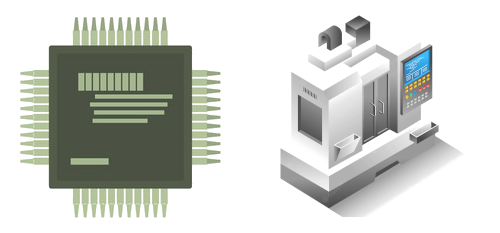
The global additive manufacturing industry has progressed very quickly offering broader and high-value applications. This accelerating shift has been due to its advantages over conventional manufacturing.
Today, applications of additive manufacturing appear to almost be limitless. It is used to fabricate high-tech industrial (aerospace, medical/dental, automotive, electronic), consumer (home, fashion, and entertainment) products, and advancements in polymeric materials continue to offer new possibilities for the manufacturing industry.
Explore what is additive manufacturing, the process of manufacturing, and the types of polymers that are generally used in each process.
What is Additive Manufacturing?
3D printing, also known as additive manufacturing (AM), refers to various innovative processes that are used to manufacture three-dimensional products.
In additive manufacturing, successive layers of material are formed under computer control to create an object. These objects can be of almost any shape or geometry and are produced from a digital 3D model or other electronic data sources.
Great attention has been given to this subject for a while now since it offers new opportunities for polymers in factories of the future.
Additive manufacturing may be a more appropriate term to use than 3D printing because it includes all processes that are “additive”. The term “3D printing” applies more specifically to additive manufacturing processes that use a printer-like head for deposition of the material (e.g., material jetting). 3D printing is now only one of the processes that is a part of the additive manufacturing universe.
Technical articles and standards generally use the term “additive manufacturing” to emphasize this broader meaning.






 History
History
 Science and technology
Science and technology


